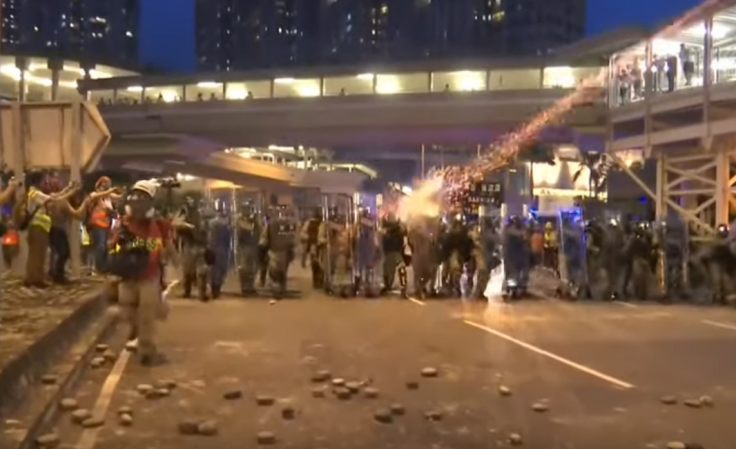The unrest in Hong Kong sparked violence and protests and residents of the city are finding it hard to cope up with the way how their lives changed drastically. The sound of sirens and the smell of tear gas are now a common occurrence on a daily basis and this is negatively affecting the health of its residents.
Tear gas has been fired at the protesters almost everyday by the police and experts say it contains aluminum and magnesium. Since the dioxins are discharged on a regular basis, the residue remains in the air making it hard for people to step out and breathe freely.

Government releasing slow poison on its residents?
According to the U.S. National Institute of Environmental Health Sciences, the dioxins released in the air by tear gas can be stored in the human body for up to 11 years. The repercussions are dangerous as it causes "developmental problems in children, lead to reproductive and infertility problems in adults, result in miscarriages, damage the immune system, and interfere with hormones."
Sven-Eric Jordt, an associate professor at Duke University School of Medicine, said to Time Magazine that China made tear gas chemicals have the ability to even melt the asphalt of the roads and is dangerous for humans in the long run.
"Tear gas is a chlorinated organic chemical. When chlorinated organic chemicals are burned at high temperatures, dioxin can be produced. The China-made tear gas cartridges have caused severe burn injuries and even melted the asphalt of the roads," he said.
Hong Kong residents speak out about the city's air quality

Ms. Chan, who runs a fruit stall at a market in the city said, "My regular customers say they don't trust the food at the market anymore. Actually, it's already better now. Last week, we barely saw a soul.'' Her stall at the market is amidst the financial districts, tourist hot spots, shopping malls and subway stations. According to official figures, around 10,000 rounds of tear gas have been fired in and around that spot.
Another resident, Mrs Tse said that she avoids walking in the streets and takes detours wherever tear gas had been shelled. "When I'm with my son, I avoid walking through places that have been teargassed. I would rather we take a detour so we aren't exposed to the second-hand effects." This is now the sad reality of the residents of Hing Kong.








